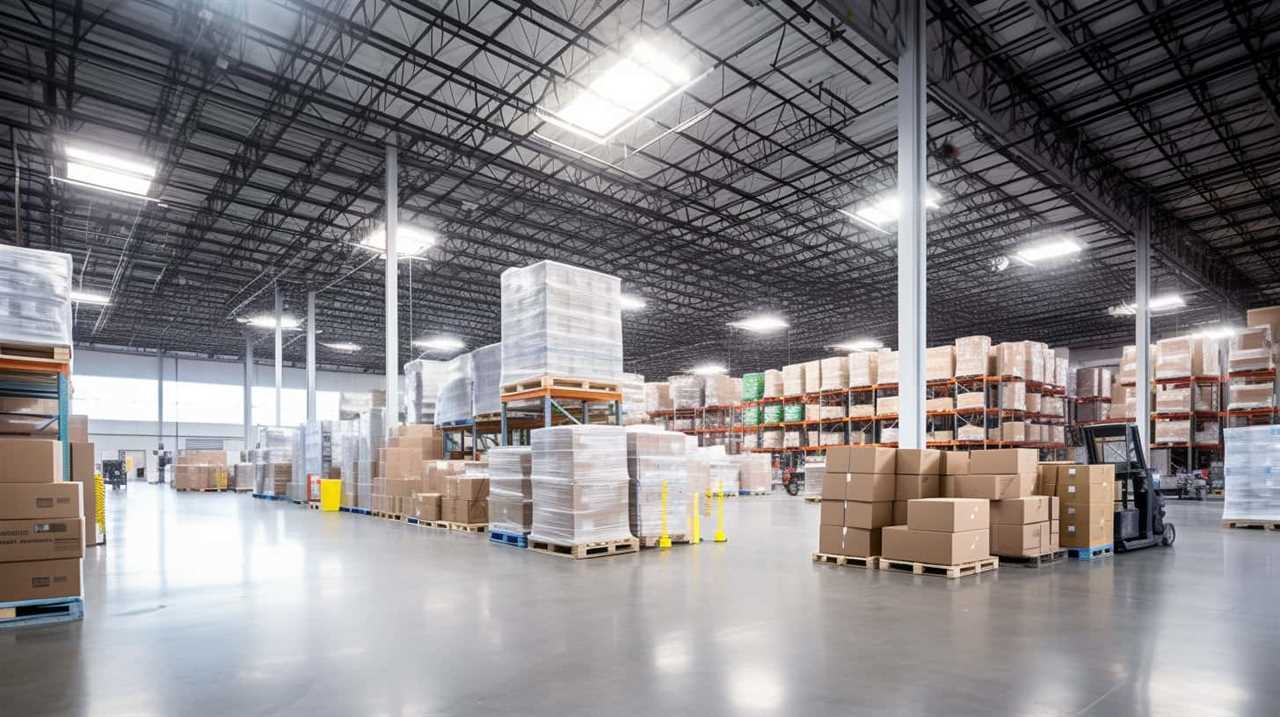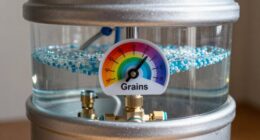To comprehend energy usage and make well-informed choices regarding gas consumption, it is essential to pinpoint the appliances that utilize the highest amount of gas. This awareness enables homeowners and businesses to prioritize energy-efficient options and lessen their impact on the environment.
By analyzing gas consumption patterns, it becomes evident that certain appliances are major contributors to gas usage. This article aims to provide a comprehensive guide on which appliances use the most gas, offering valuable insights for individuals seeking mastery in energy conservation.
From furnaces and water heaters to stoves/ovens and dryers, we will explore the gas consumption of various appliances commonly found in households and commercial settings.
By understanding these gas-consuming appliances, readers can take proactive steps towards adopting more sustainable practices and optimizing energy efficiency.

Key Takeaways
- Furnaces and water heaters are the appliances that consume the most gas, so regular maintenance is crucial to ensure efficient operation and reduce gas consumption.
- Gas stoves are preferred over electric stoves due to their efficiency and performance in cooking.
- Dryers can also use a significant amount of gas, but regular maintenance and efficient use can help reduce gas consumption.
- Gas fireplaces and ventless fireplaces tend to consume more gas compared to wood-burning fireplaces. Gas grills are generally more fuel-efficient than charcoal grills.
Furnace
The furnace, which is a vital component of many households’ heating systems, consumes a significant amount of gas to provide warmth during colder months. Gas furnace maintenance is crucial to ensure its efficient operation and prevent any potential issues.
Regular maintenance includes cleaning and inspecting the furnace’s components, such as the burners, heat exchanger, and air filters. It is recommended to schedule professional maintenance at least once a year to optimize performance and identify any potential problems.
Additionally, furnace troubleshooting tips can help homeowners identify and resolve common issues. For example, if the furnace is not producing enough heat, it could be due to a dirty air filter or a malfunctioning thermostat.
Water Heater
Water heaters consume a significant amount of gas for heating water in many households. Gas water heaters are commonly used due to their efficiency and effectiveness in providing hot water for various household activities. Energy efficient water heaters are designed to minimize gas consumption while still meeting the demands of hot water usage.

These water heaters utilize advanced technologies such as improved insulation, high-efficiency burners, and better heat exchange systems to maximize energy savings. Energy efficient gas water heaters are rated by their Energy Factor (EF), which represents the ratio of usable hot water output to the total energy input. Higher EF ratings indicate greater efficiency.
Stove/oven
When considering the gas consumption of a stove/oven, several factors come into play.
Firstly, the efficiency of a gas stove is crucial in determining its gas usage, as a more efficient stove will require less gas to produce the desired heat.
Secondly, the energy consumption of the oven component should be taken into account, as ovens tend to use more gas compared to stovetops.

Lastly, a comparison between gas and electric stoves can shed light on the differences in gas consumption, as electric stoves do not rely on gas at all.
Gas Stove Efficiency
Gas stove efficiency plays a crucial role in determining the amount of gas consumed by the stove/oven unit. To ensure optimal efficiency and reduce gas consumption, regular gas stove maintenance is essential.
This includes cleaning the burners, inspecting and replacing faulty parts, and ensuring proper ventilation. Regular maintenance not only improves efficiency but also enhances safety.
Gas stove safety precautions should be followed to prevent accidents and ensure the longevity of the appliance. These precautions include keeping flammable materials away from the stove, using the range hood to remove cooking odors and fumes, and checking for gas leaks regularly.

Oven Energy Consumption
Continuing the discussion on gas stove efficiency, the next aspect to consider is the oven energy consumption of the stove/oven unit. It is important to evaluate the oven’s energy efficiency as it can significantly impact energy usage and costs. By understanding the factors that contribute to oven energy consumption, homeowners can make informed decisions to reduce their energy usage.
One effective way to assess oven energy efficiency is by comparing the energy consumption of different oven models. The table below illustrates the average energy consumption of various oven types:
| Oven Type | Energy Consumption (kWh) |
|---|---|
| Conventional oven | 2.5 |
| Convection oven | 1.8 |
| Self-cleaning oven | 3.2 |
| Combination oven | 2.1 |
| Double oven | 4.5 |
To reduce oven energy consumption, homeowners can consider using convection ovens or combination ovens, which consume less energy compared to conventional and self-cleaning ovens. Additionally, practicing energy-saving techniques such as preheating only when necessary and utilizing oven timers can further contribute to reducing energy usage.
Gas Vs Electric Stoves
To compare the efficiency of gas and electric stoves, it is important to analyze their energy consumption and performance.

Gas stoves have been widely used for cooking due to their numerous advantages. One key advantage is their efficiency in converting energy into heat. Gas stoves provide instant and precise heat control, allowing for quick temperature adjustments during cooking. This results in reduced cooking time and energy consumption. Additionally, gas stoves offer a more even distribution of heat, ensuring that food is cooked evenly.
On the other hand, electric stoves take longer to heat up and cool down, leading to potential energy waste. Furthermore, electric stoves may experience heat loss due to their heating elements being raised above the cooking surface.
Dryer
When it comes to gas consumption, dryers can be one of the appliances that use the most gas in a household.
However, there are energy-efficient dryer options available that can help reduce gas usage.

Additionally, there are simple tips that can be followed to further decrease gas consumption when using a dryer.
Gas Consumption Comparison
The gas consumption of a dryer can vary significantly depending on its efficiency rating and usage patterns.
When it comes to gas stove maintenance, it is important to keep the appliance clean and free from debris, as this can affect its performance and gas consumption. Regularly inspecting the gas stove for any leaks or damage is also crucial for ensuring safety.
It is recommended to have a professional technician perform routine maintenance checks to detect any potential issues early on.

Additionally, using the dryer efficiently, such as running full loads and avoiding excessive drying times, can help reduce gas consumption.
Energy-Efficient Dryer Options
Energy-efficient dryers offer a significant reduction in gas consumption compared to their conventional counterparts. By investing in energy-efficient dryer models, consumers can not only save money on their energy bills but also contribute to a more sustainable future.
Here are three key features of energy-efficient dryers that can help in reducing dryer energy consumption:
- Moisture sensors: Energy-efficient dryers are equipped with moisture sensors that detect when the clothes are dry. This allows the dryer to automatically shut off, preventing unnecessary over-drying and reducing gas consumption.
- Heat pump technology: Some energy-efficient dryers use heat pump technology, which recycles and reuses hot air generated during the drying process. This innovative technology can significantly reduce gas consumption by up to 50% compared to conventional dryers.
- Enhanced insulation: Energy-efficient dryers are designed with improved insulation, minimizing heat loss during operation. This ensures that the heat generated is effectively utilized for drying clothes, resulting in lower gas consumption.
Investing in an energy-efficient dryer not only helps in reducing gas consumption but also promotes energy conservation, leading to a greener and more sustainable lifestyle.
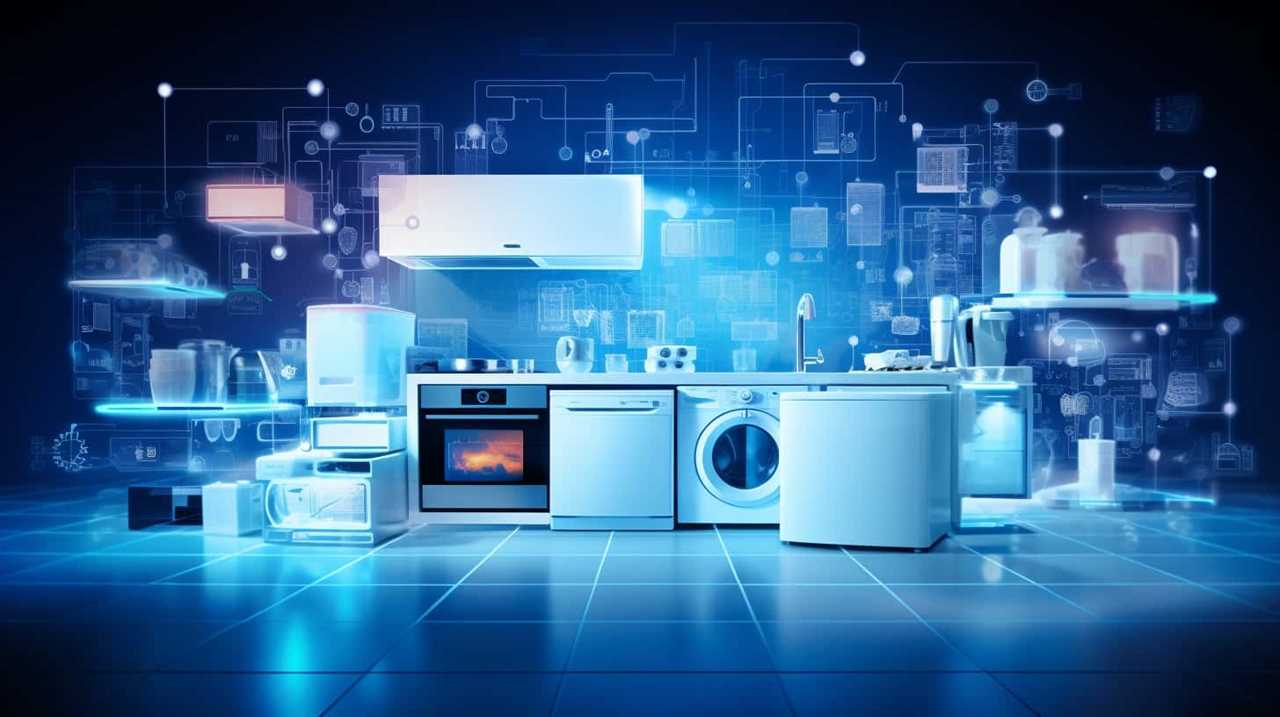
Tips to Reduce Usage
To minimize gas consumption, implement effective strategies to reduce dryer usage. By following these tips to save gas, you can make your dryer use more efficient and reduce energy costs.
Firstly, make sure to only use the dryer when necessary. Air drying clothes or using a clothesline can be a great alternative.
Additionally, ensure that your dryer is properly maintained. Clean the lint trap before each use to improve airflow and efficiency. Regularly inspect and clean the dryer vent to prevent blockages and maximize airflow.
Furthermore, consider investing in energy-saving appliances. Look for dryers with an Energy Star label, as they are designed to use less energy.

Fireplace
A fireplace consumes a significant amount of gas. When it comes to fireplace safety, it is crucial to understand the different types of fireplaces available. Here are three types of fireplaces commonly used:
- Gas fireplaces: These fireplaces are efficient and convenient as they provide instant heat with the flip of a switch. However, they can consume a substantial amount of gas, especially if used frequently.
- Wood-burning fireplaces: While these fireplaces offer the traditional charm and ambiance, they can be less efficient and require more gas to maintain a consistent flame. It is important to use seasoned wood and ensure proper ventilation to maximize efficiency.
- Ventless fireplaces: These fireplaces do not require a chimney or vent, making them easy to install. However, they can release combustion byproducts directly into the room. This can contribute to poor indoor air quality and increase gas consumption.
Understanding the different types of fireplaces can help homeowners make informed decisions about gas usage and fireplace safety.
Pool Heater
The consumption of gas can be significant when operating a pool heater. Pool heaters are designed to warm up the water in swimming pools, ensuring a comfortable swimming experience even during colder months. However, the efficiency of pool heaters can vary, leading to differences in the cost of operating them.
When considering a pool heater, it is important to look for models that offer high efficiency. Energy-efficient pool heaters can save a significant amount of gas, reducing both the environmental impact and the cost of operation. These heaters utilize advanced technology to maximize heat transfer and minimize energy waste.

The cost of operating a pool heater depends on several factors including the size of the pool, the desired temperature, and the local gas prices. Pool owners should consider the long-term cost of gas consumption when choosing a pool heater, as it can have a significant impact on their overall expenses.
Transition: Now that we have discussed the pool heater, let’s move on to the next appliance that uses gas – the outdoor grill.
Outdoor Grill
The fuel consumption of outdoor grills is an important consideration when it comes to gas usage. Different types of grills, such as propane or natural gas, may have varying levels of fuel efficiency. Additionally, efficient grilling techniques, such as preheating the grill and using a lid, can help reduce gas consumption.
It is also worth noting the environmental impact of grilling, as the combustion of gas releases carbon dioxide and other greenhouse gases into the atmosphere.

Grill Fuel Consumption
Grill fuel consumption can vary significantly depending on the type and size of the outdoor grill. To help you understand the efficiency of your grill, here is a list of factors that can impact fuel consumption:
- Grill size: Larger grills tend to consume more fuel due to their higher heat output and larger cooking surface area.
- Fuel type: Gas grills are generally more fuel-efficient compared to charcoal grills, as they provide consistent heat and allow for better temperature control.
- Proper maintenance: Regularly cleaning and maintaining your gas grill can optimize its performance and fuel efficiency.
Understanding these factors can help you make informed decisions about your grilling practices.
Now, let’s delve into efficient grilling techniques to further enhance your grilling experience.
Efficient Grilling Techniques
To maximize fuel efficiency and enhance your grilling experience, implementing efficient techniques is crucial when using an outdoor grill. By following these efficient grilling techniques, you can minimize gas consumption and improve your overall cooking results.

Firstly, preheating your grill for about 15 minutes before cooking can ensure that it reaches the desired temperature quickly and reduces the cooking time.
Additionally, keeping the lid closed as much as possible helps to retain heat and reduces the need for excessive gas usage.
Another technique is to use indirect grilling, where the food is cooked away from the direct heat source. This method not only saves gas but also allows for more even cooking.
Lastly, regular cleaning and maintenance of your grill can help improve its efficiency and prolong its lifespan.

Implementing these efficient grilling techniques and following grilling safety tips will help you achieve great results while minimizing gas consumption.
As we discuss the efficient grilling techniques, it is important to also consider the environmental impact of grilling.
Environmental Impact of Grilling
An outdoor grill’s environmental impact can be significant and should be taken into consideration. Here are three key points to understand about the environmental impact of grilling:
- Carbon emissions: Gas grills release carbon dioxide (CO2) during combustion, contributing to greenhouse gas emissions and climate change. According to the Environmental Protection Agency (EPA), the average gas grill emits approximately 5.6 pounds of CO2 per hour of use.
- Air pollution: Grilling can produce harmful pollutants such as volatile organic compounds (VOCs) and particulate matter (PM). These pollutants can lead to respiratory issues and contribute to smog formation.
- Deforestation: Charcoal grilling contributes to deforestation as many charcoal products are made from wood sourced from forests. Deforestation disrupts ecosystems, destroys habitats, and reduces biodiversity.
To minimize the environmental impact of grilling, consider these alternatives to gas grilling: electric grills, solar-powered grills, or using sustainably sourced charcoal. Additionally, practicing grilling safety precautions, such as cleaning the grill regularly and properly disposing of ashes, can help reduce environmental impact.

Space Heater
Space heaters are known for their high gas consumption and efficient heating capabilities.
When it comes to space heater safety, proper maintenance is crucial. Regularly inspecting and cleaning the heater is essential to prevent any potential gas leaks or malfunctions.
Additionally, ensuring that the heater is placed in a well-ventilated area can help prevent the buildup of carbon monoxide, a potentially lethal gas produced by incomplete combustion.
It is also important to follow the manufacturer’s instructions for safe operation, including never leaving the heater unattended or using it while sleeping.

Generator
The generator is a gas-consuming appliance that is widely used for backup power supply during emergencies.
When it comes to generator efficiency, it is important to consider the following factors:
- Size matters: Choose a generator that is appropriately sized for your needs. Oversized generators can result in wasted fuel consumption, while undersized generators may not provide enough power.
- Regular maintenance: Proper generator maintenance is crucial for optimal performance and efficiency. Regularly clean or replace air filters, change oil, and inspect spark plugs to ensure smooth operation and fuel efficiency.
- Fuel type: Different generators run on different types of fuel, such as gasoline, propane, or diesel. Consider the availability, cost, and efficiency of the fuel options before deciding on a particular generator.
Boiler
Moving on to the next gas-consuming appliance discussed in the article, we will now delve into the topic of boilers.
Boilers are essential devices used for heating water and generating steam for various industrial and residential purposes. When it comes to boiler efficiency, it refers to the ability of a boiler to convert fuel into usable heat energy with minimal waste.

Improving boiler efficiency is crucial not only for cost savings but also for reducing boiler emissions, such as carbon dioxide and nitrogen oxides. Several measures can be taken to enhance boiler efficiency, including regular maintenance, optimizing combustion processes, and installing energy-efficient equipment.
Hot Tub
Continuing our exploration of gas-consuming appliances, let us now turn our attention to hot tubs. While hot tubs provide a luxurious and relaxing experience, it is essential to consider their energy efficiency and maintenance requirements. Here are three factors to keep in mind:
- Insulation: Well-insulated hot tubs can retain heat better, reducing the need for additional gas consumption to heat the water. Insulating the tub’s shell, cover, and pipes can significantly improve energy efficiency.
- Temperature settings: Lowering the temperature of your hot tub by just a few degrees can lead to significant energy savings. Consider reducing the temperature when the tub is not in use or using a timer to regulate heating.
- Regular maintenance: Proper maintenance ensures optimal performance and energy efficiency. Regularly clean the filters, check for leaks, and ensure that the tub is properly sealed to prevent heat loss.
Central Heating System
For a comprehensive analysis of gas consumption, let’s now delve into the efficiency and energy usage of central heating systems. Central heating systems are a vital component of many households, providing warmth and comfort during the colder months. However, they can also consume a significant amount of gas, leading to high energy bills. To help homeowners make informed decisions and reduce central heating costs, it is important to understand the central heating efficiency of different systems. The table below provides a comparison of the energy efficiency ratings and estimated annual gas consumption for three common types of central heating systems:
| Central Heating System | Energy Efficiency Rating | Estimated Annual Gas Consumption (kWh) |
|---|---|---|
| Gas Boiler | 90% | 12,000 |
| Heat Pump | 300% | 4,000 |
| Electric Heater | 100% | 9,000 |
Gas-Powered Vehicle
When considering the gas consumption of various appliances, it is important to examine the usage of gas-powered vehicles. Gas-powered vehicles are a significant contributor to gas consumption, and their efficiency directly impacts fuel consumption and emissions. Here are three key points to consider:

- Fuel efficiency: Gas-powered vehicles vary in terms of fuel efficiency. Smaller vehicles with hybrid or electric components tend to be more fuel-efficient, while larger vehicles such as trucks and SUVs consume more gas.
- Driving habits: The way we drive greatly affects gas consumption. Aggressive driving, excessive idling, and speeding can significantly increase fuel consumption.
- Maintenance: Proper vehicle maintenance, such as regular oil changes, tire inflation, and tune-ups, can improve gas efficiency. Neglecting maintenance can result in decreased fuel economy.
Understanding these factors can help individuals make informed decisions when it comes to gas-powered vehicles, promoting fuel efficiency and reducing gas consumption.
Frequently Asked Questions
How Do I Maintain My Furnace to Ensure It Operates Efficiently and Uses Gas More Effectively?
To ensure efficient operation and effective gas usage of your furnace, regular maintenance is crucial. This includes cleaning or replacing filters, inspecting and cleaning the burner, and ensuring proper airflow. Additionally, scheduling professional inspections and tune-ups can optimize its performance.
Are There Any Energy-Saving Tips Specific to Gas-Powered Water Heaters?
Gas-powered water heaters can be optimized for energy efficiency by following these energy-saving tips: insulate the tank, lower the thermostat temperature, install low-flow fixtures, and consider upgrading to a high-efficiency model.
Can I Use My Gas Stove/Oven During a Power Outage?
During a power outage, it is generally safe to use a gas stove or oven as long as you have proper ventilation. However, it is important to have alternative cooking methods available in case the gas supply is interrupted.
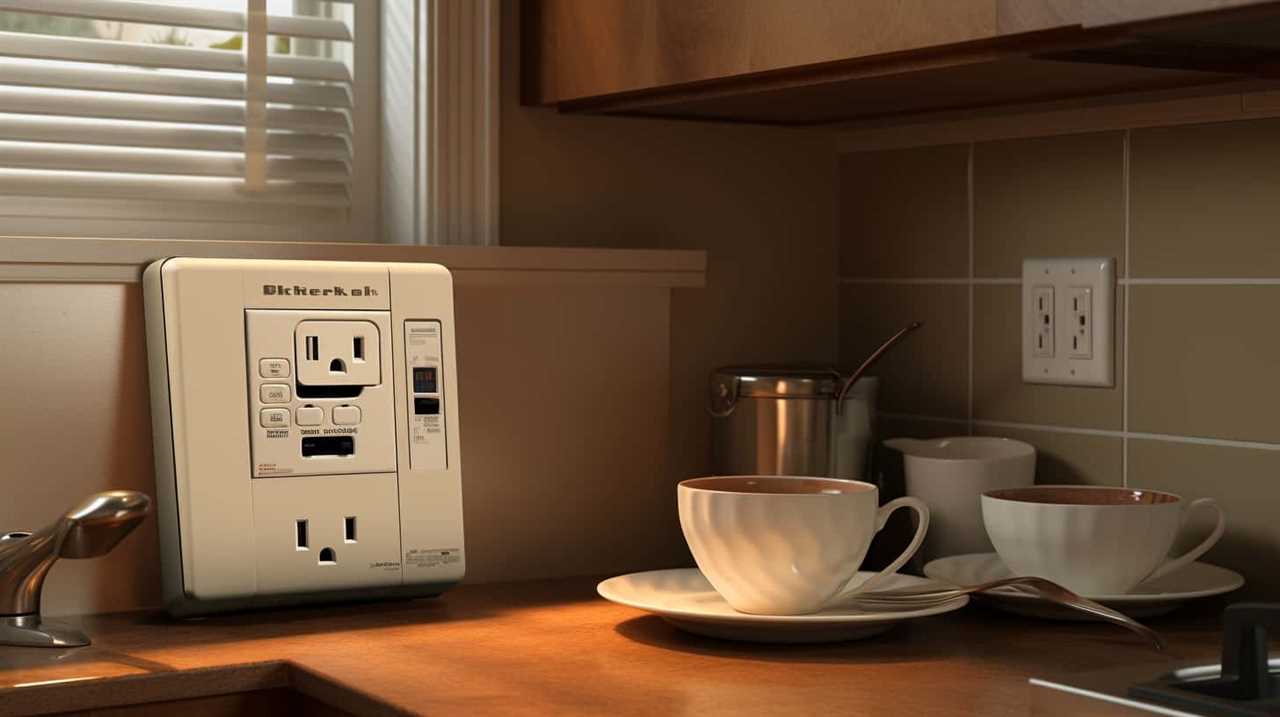
Are There Any Special Considerations for Using a Gas-Powered Dryer, Such as Ventilation Requirements or Maintenance?
When using a gas-powered dryer, it is important to consider ventilation requirements to ensure proper airflow and prevent the buildup of potentially harmful gases. Safety considerations and regular maintenance are also crucial to ensure optimal performance and minimize potential risks.
Is It Safe to Use a Gas-Powered Outdoor Grill on a Balcony or Patio?
Gas grill safety is a top concern when using them on balconies or patios. Precautions include ensuring proper ventilation, keeping a safe distance from flammable materials, and regularly inspecting and maintaining the grill for any gas leaks or malfunctions.
Conclusion
In conclusion, certain appliances stand out as the top gas consumers when it comes to gas consumption. These include furnaces, water heaters, stoves/ovens, dryers, fireplaces, boilers, hot tubs, central heating systems, and gas-powered vehicles.
Understanding the gas consumption of these appliances is important because it allows individuals to make informed decisions about their energy usage. By knowing which appliances consume the most gas, individuals can take steps to reduce their environmental impact and potentially save on energy costs.
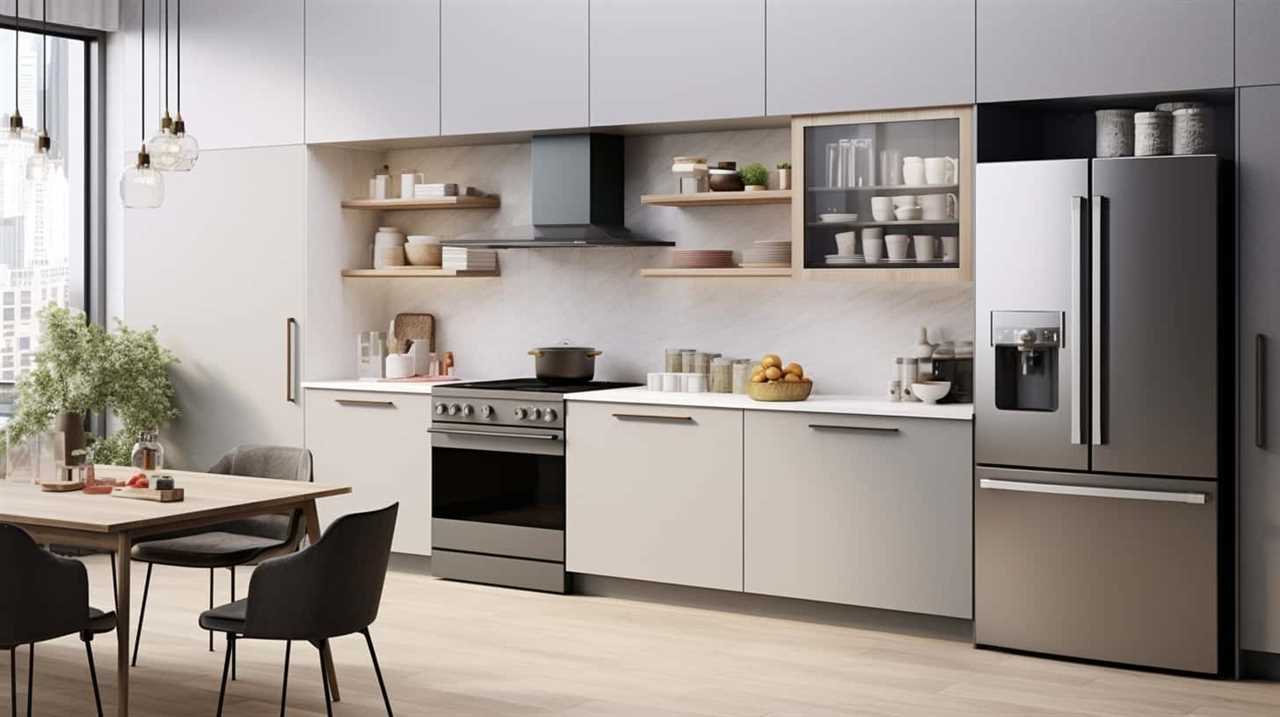
By grouping these appliances together, individuals can see the common theme of gas consumption and the potential impact it has on their energy usage. This knowledge can then be used to make changes in daily habits and lifestyle choices that can lead to a more sustainable future.





